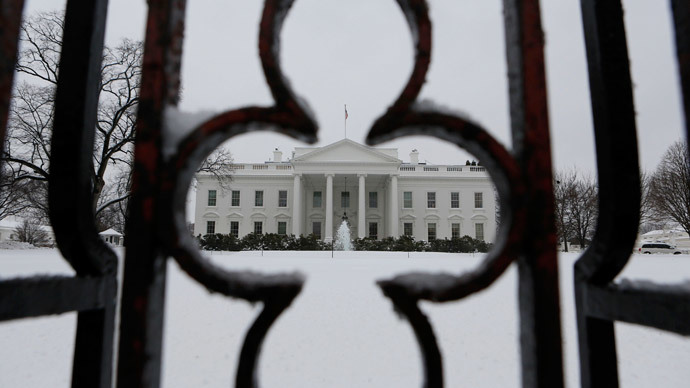White House says Obama can’t force FCC to fix net neutrality

The White House said this week that while the president favors a free and open internet, he cannot ask the Federal Communications Commission to reclassify broadband service in a way that would let the FCC regulate how content is delivered to customers.
A ruling last month by the United State Court of Appeals in Washington, DC found that the FCC had erred by insisting that Internet Service Providers, or ISPs, give customers equal access to all lawful content on the web. Federal regulators couldn’t impose such a rule, the court wrote, because the Open Internet Order created by the FCC in 2010 had classified broadband service providers in a way that excludes ISPs from that document’s anti-blocking and anti-discrimination requirements.
The decision was immediately criticized by open internet advocates who feared the ruling would let ISPs effectively censor content by prioritizing the transfer of digital data to the highest bidder. Craig Aaron, the CEO of consumer advocacy group Free Press, said at the time that ISPs will “race to turn the open and vibrant web into something that looks like cable TV” and “establish fast lanes for the few giant companies that can afford to pay exorbitant tolls and reserve the slow lanes for everyone else.”
Within hours of that ruling, a petition asking US President Barack Obama to intervene was created, and the White House was urged to make the FCC reclassify ISPs as “common carriers” and therefore subject to the net neutrality rules included in the Open Internet Order. On Tuesday, however, the administration issued a statement saying the president was prohibited from doing such.
“The petition asked that the president direct the FCC to reclassify Internet service providers as ‘common carriers’ which, if upheld, would give the FCC a distinct set of regulatory tools to promote net neutrality,” an excerpt of the official response reads. But because “The FCC is an independent agency,” it continued, even Pres. Obama himself can’t intervene.
But after more than 105,000 people pleaded with the White House to impose those orders on the FCC, regulators may now take matters into their own hands. FCC Chairman Tom Wheeler said Wednesday that he will not ask the federal appeals court to reconsider last month’s decision, but he will, however, work towards creating new rules using a different legal basis affirmed by the appellate panel, CNET reported.
According to CNET, Wheeler shortly after the White House released their statement that he plans to accept an invitation from the appeals court to find a new path to preserve an open internet, and that he will propose “rules that will meet the court's test for preventing improper blocking of and discrimination among Internet traffic, ensuring genuine transparency in how Internet Service Providers manage traffic and enhancing competition."
Earlier in the week, Wheeler said during a keynote speech at the University of Colorado that "The preservation of an open Internet is within the FCC's authority.”
"We can't just kick the can down the road. We have an obligation to act now,” Wheeler said, according to the Daily Camera newspaper.
In Tuesday’s official statement from the White House, Gene Sperling and Todd Park — the assistant to the president for economic policy and the US chief technology officer, respectively — said it was “encouraging” to see Wheeler “reaffirm his commitment to a free and open Internet and pledge to use the authority granted by Congress to maintain a free and open Internet.”
“Preserving an open Internet is vital not to just to the free flow of information, but also to promoting innovation and economic productivity. Because of its openness, the internet has allowed entrepreneurs -- with just a small amount of seed money or a modest grant -- to take their innovative ideas from the garage or the dorm room to every corner of the Earth, building companies, creating jobs, improving vital services and fostering even more innovation along the way,” they wrote.
“Absent net neutrality, the Internet could turn into a high-priced private toll road that would be inaccessible to the next generation of visionaries. The resulting decline in the development of advanced online apps and services would dampen demand for broadband and ultimately discourage investment in broadband infrastructure. An open Internet removes barriers to investment worldwide,” the statement continued.
But while net neutrality advocates say the Court of Appeals ruling last month in the case of Verizon v FCC has wide-ranging implications for the future of the web, the authors of the statement insist that the president has faith that the chairman of the regulatory agency will work to ensure the open internet remains unhindered in America.
Upon the appeals court’s decision last month, Wheeler said he’s “committed to maintaining our networks as engines for economic growth, test beds for innovative services and products and channels for all forms of speech protected by the First Amendment.
Wheeler was appointed last November to head the FCC by Pres. Obama. On Tuesday, Edward Wyatt of the New York Times wrote that “The five commissioners of the agency — three from the president’s party, including the chairman, and two from the party not controlling the White House — are appointed by the president and confirmed by the Senate.”














